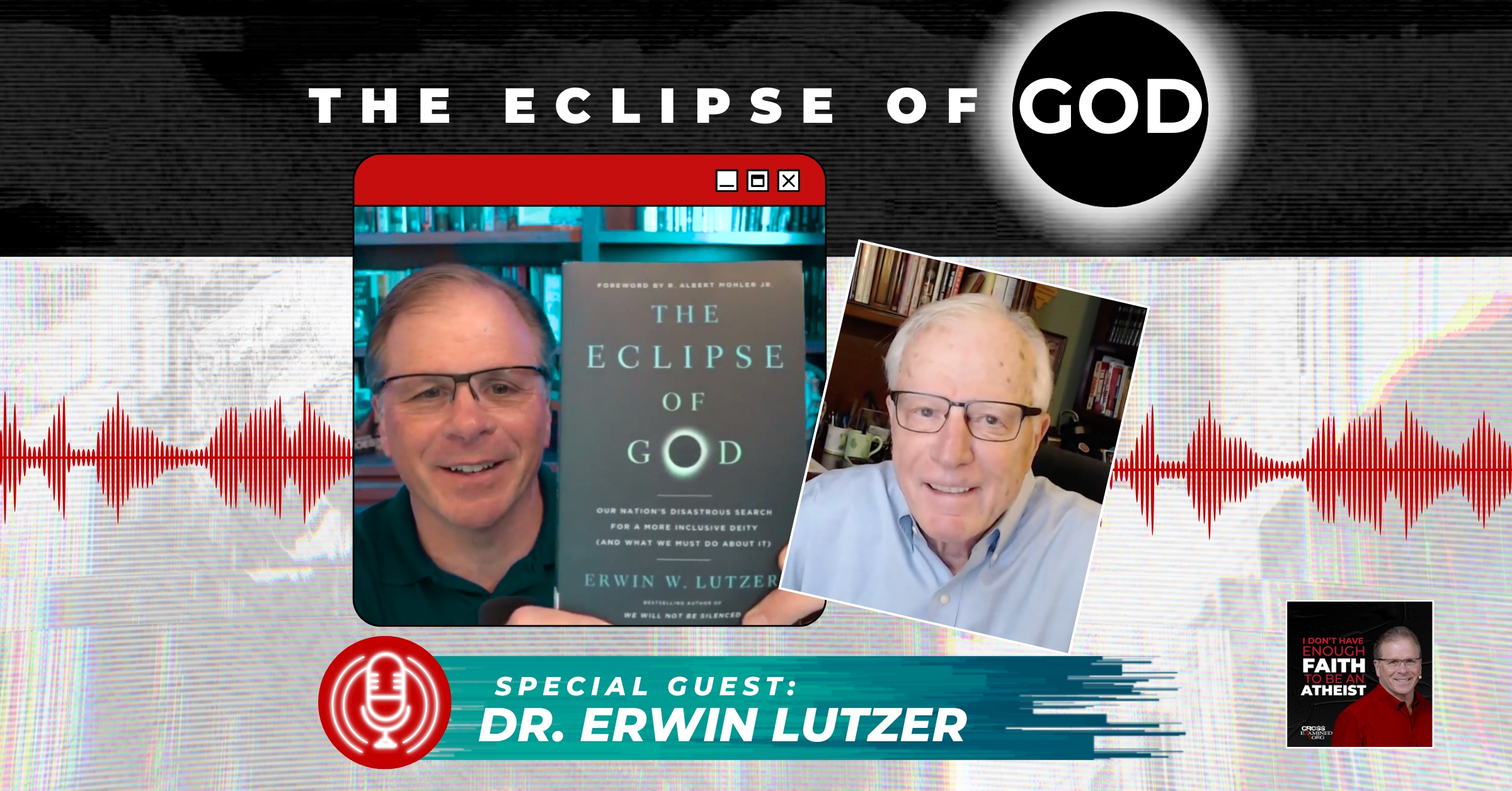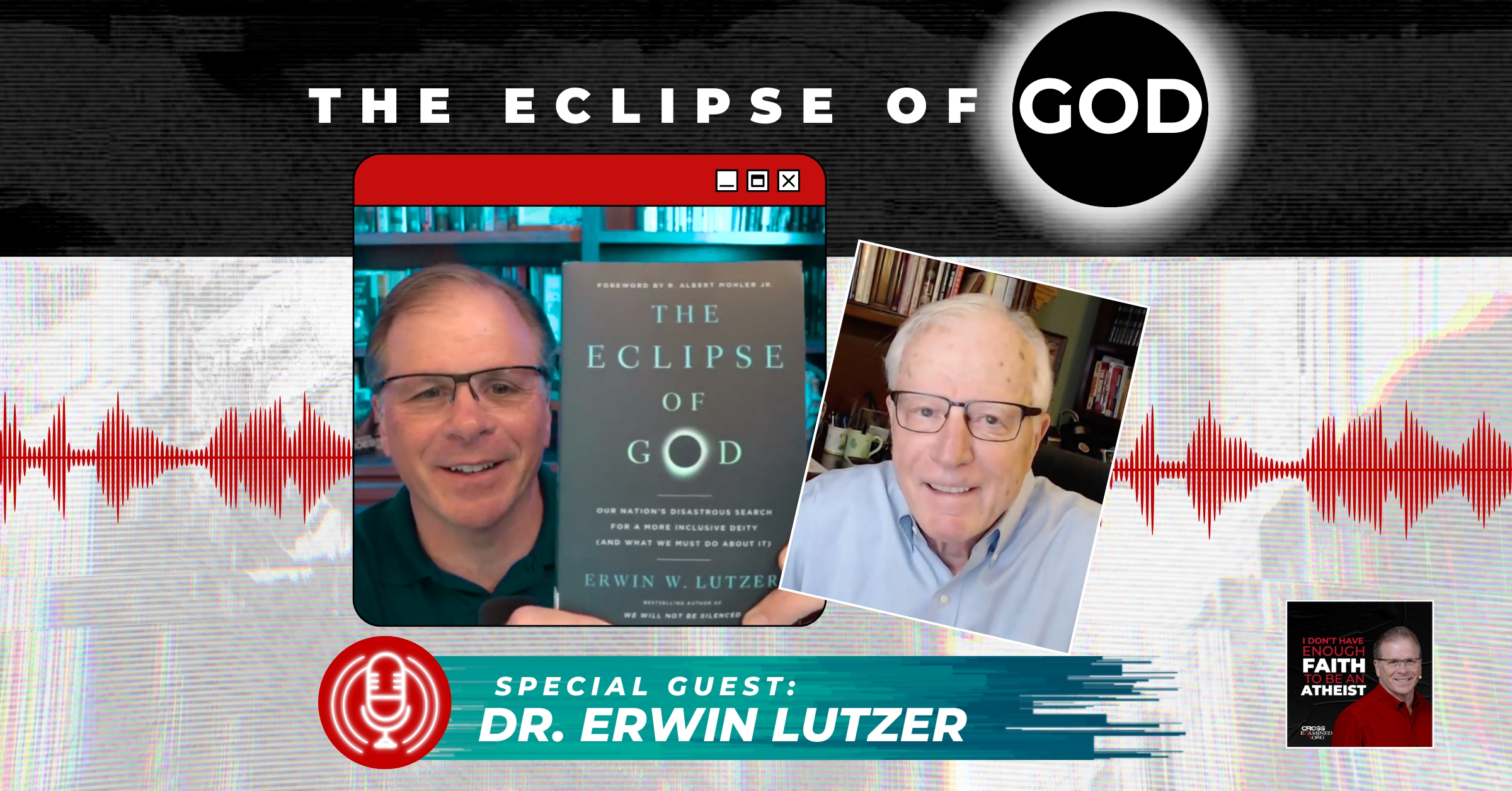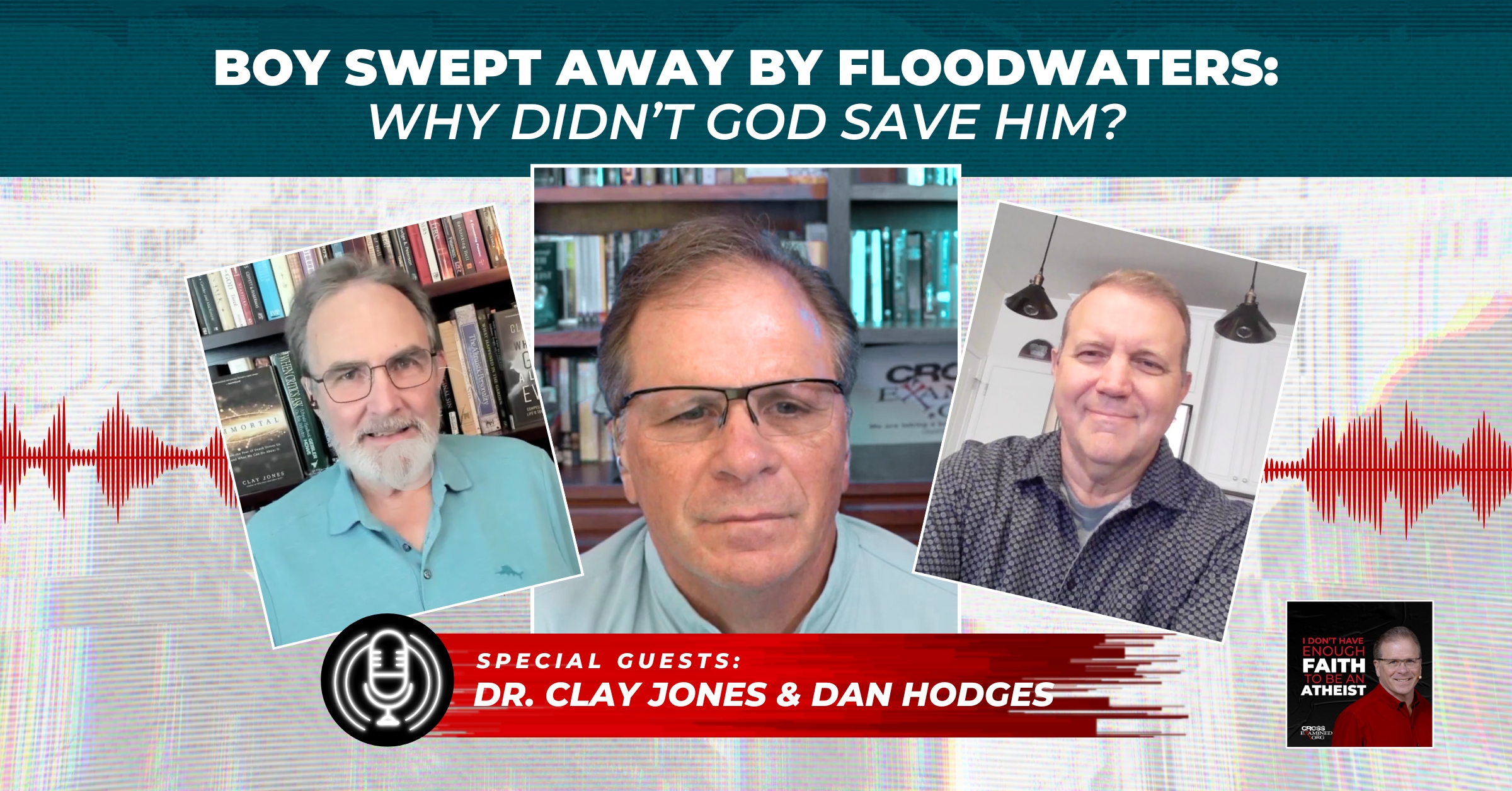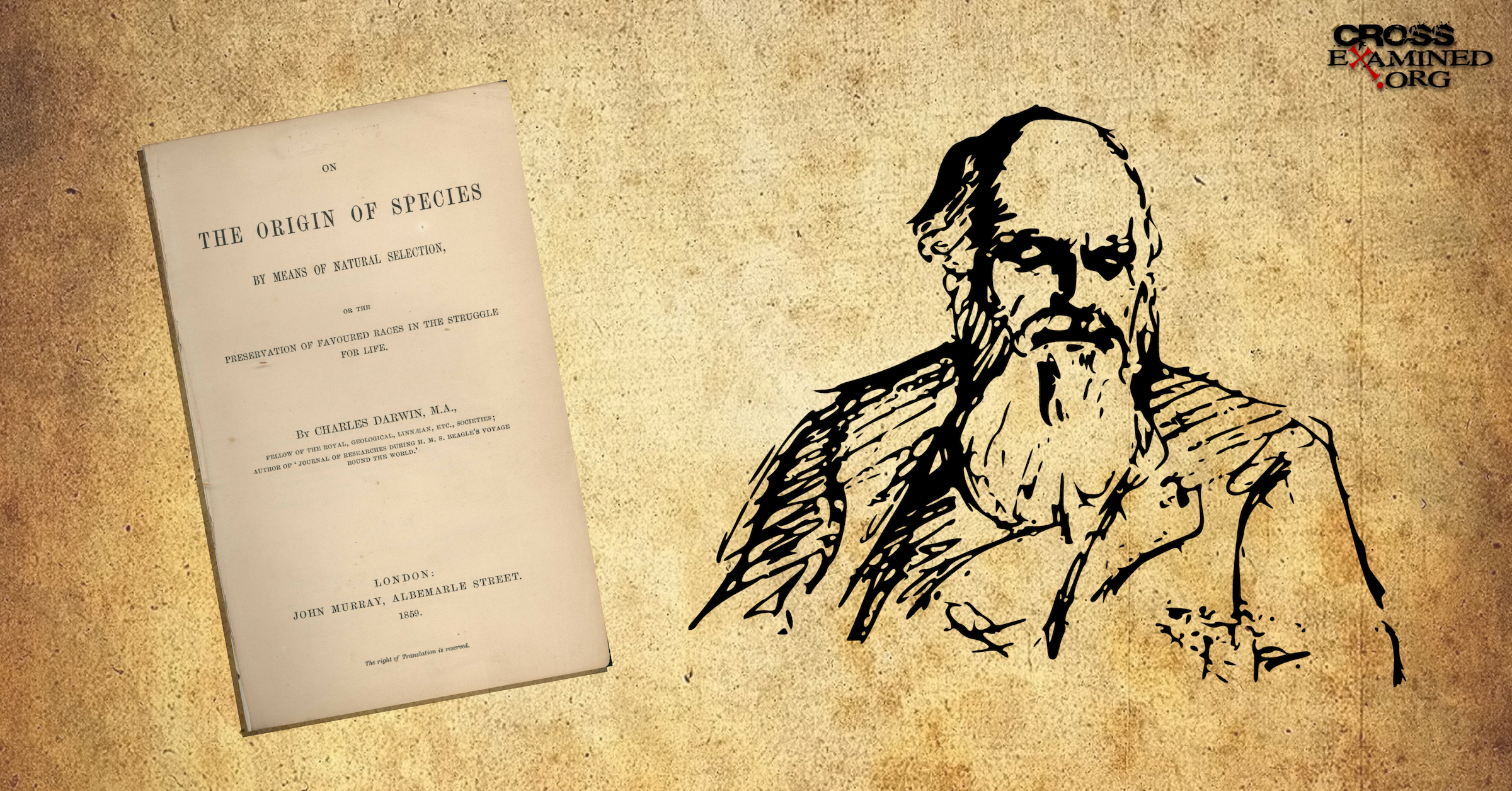If you’ve followed the problem of evil at the popular or academic level, then there’s a good chance you’ve come across the rather interesting objection from Stephen Law which he terms the “Evil God challenge.”
In essence he contends that skeptics can reverse any efforts from theists to explain God’s goodness in spite of the facts of evil in the world. The conventional problem of evil claims that God doesn’t exist or probably doesn’t exist given the facts of evil (gratuitous evil, animal suffering, moral evil, etc.) in the world. While theists typically appeal to things like free and sublime unknown divine purposes to explain away these evils, the skeptic can counter that these evils are equally good evidence that there exists a maximally evil God. Free will is the accommodation that this maximally evil God permits since deterministic evils aren’t as evil as freely chosen evils. And that supreme Satan wants the worst evils.
I consider Stephen Law’s “Evil God Challenge” to be one of the smarter objections within the Problem of Evil (PoE) debate. That said, his argument does have some limitations.
Independent Evidence
As Bill Craig rightly notes, and Law unwisely dismisses, there could exist independent reasons for believing in God’s existence (such as the Cosmological, Teleological, and Moral Arguments), wherein a cumulative case could assimilate the Free will theodicy but would rebut the Evil God Challenge. Considered together these arguments point to a tremendously powerful, intelligent, and good creator God. The evil god hypothesis doesn’t fit theological picture from these arguments.
The Moral Argument
The Moral Argument is stronger than how Law treats it. Only some versions/elements of the Moral Argument submit to his “evil God” recasting. I’d suggest that we have preliminary knowledge of at least some moral facts whereby some things are good and some things are bad even if a whole society were to legalize that evil or prohibit that good. Yet the existence of moral facts (i.e., a category of truth) requires a moral truthmaker. Nature seems wholly incapable, in itself, of mustering the requisite teleology for enabling the referential relation needed for any such “truth” to exist. In other words, there’s nothing nature that could make a moral truth “true.” (i.e., “Raping women is evil. As such we ought not do it. But nature never mustered a single ‘ought.’ Therefore, that “oughtness” originates from outside of nature). So, I take the moral argument to be strong evidence of a morally good God.[i]
Fallenness
Brute theism doesn’t predict the Fall of Man (Gen. 3), but more specific brands of theism in the Abrahamic tradition predict the Fall of Man, the Angelic Fall, heaven, hell, and the subsequent problems in nature. I don’t pretend to have a ready answer here for the many and sordi problems related to animal suffering, pre-adamic pain, hell, etc. But, it’s worth noting that Christian theism does not predict that this earth would be heavenly. It’s atheists who think that Christianity should predict a heavenly/morally perfect created order. Christianity instead predicts that this earth would look like perfection tainted, goodness flawed, like a cracked looking glass for gazing at greater things.
Law and other atheists often present the problem of evil like the fact of evil in the fallen world are supposed to scandalize us Christians as if we had no biblical-Christian reasons to expect such things. Instead, I’d suggest the existence of any moral facts whatsoever should scandalize atheists for whom nature’s red tooth and claw is as much the “moral law” as anything–if nature were all that exists.
Law is smart enough to use his ‘evil god’ hypothesis as a kind of argument by analogy. He’s not directly refuting the free will theodicy. He’s using the free will theodicy to prove an objectionable conclusion. If the facts of free will and evil equally predict an evil god as a good God, then they are not (together) strong unique evidence for either. Law has a smart argument here.
And the doctrine of fallenness doesn’t directly address the core of Law’s argument. The fact of fallenness, however, is still part of the biblical Christian explanatory package. And it would be scandalous to Christian theists if the world looked like what atheists think theism should look like. There’s an underlying disconnect between Biblical-Christian theism and the atheists conception of what such a ‘god’ would look like. In this way, Law’s ‘evil god’ might not be a strong or helpful analogue to the biblical God. Law’s evil god might be only a symmetrical foil for the abstraction that atheists label “god.” But this “god” – as conceived among atheists – is acaricature compared to the nuanced personal God of historic Christian theism.
Privation Definition of Evil
Given the evidence of the Cosmological, Teleological, and Moral arguments, we have sufficient independent evidence for thinking that God is the more ultimate reality, beyond even nature itself. And this God is the metaphysical grounding for moral goodness. An interesting implication of this conception of moral goodness is that goodness and evil aren’t ontological parallels. Goodness has independent substantial existence whereas evil has only dependent insubstantial existence as a privation of goodness. They don’t share the same metaphysical spectrum, rather evil exists only as a descriptor for the lack of goodness. Evil needs goodness, but goodness doesn’t need evil. Goodness is the metaphysical substance and evil is just the description for the lack of whatever goodness that should exist, but doesn’t. Rocks are blind, but that’s not “evil” since rocks aren’t supposed to have sight. Blind infants are an example of ontological evil. It’s somehow wrong that they are blind since infants are supposed to be able to see. Evil is still real, but it’s a real lack of metaphysical goodness. This idea is called the privation definition of evil, and is attributed to St. Augustine in his 4th-5th century address of the problem of evil. I agree with Augustine on this because every single evil I’ve yet encountered or imagined appears to be a corruption of a metaphysically prior goodness. Rape is a corruption of sexual love. Death is a corruption of life. Any brokenness is a disordering of proper form or function. Divorce is a corruption of marriage. Diseases is a corruption of health. Etc. etc.
The impossibility of “maximal evil”
Following from the last point, a privative sense of evil prohibits the “existence” of a maximally evil being. Maximal privation is literally nothingness. If we took the whole bag of all coherent, possible, actual, necessary or contingent goods and started subtracting each one of them–that’s what privation is, it’s the substraction of something–we would not end up with some maximally evil “thing.” No, we’d have literal nothingness, a wholly privated remainer wherein nothing whatsoever exists. The very notion of “maximal evil” is incoherent, and intrinsically self-defeating (not in the logically self-defeating sense, but in the metaphysical sense of depriving itself till it can no longer exist). A parasite without a host is lives no long in this world.
The Euthyphro Dilemma
William Lane Craig makes an interesting use of the Euthyphro Dilemma to rebut Law’s “evil god.” Skeptics are familiar with the euthyphro dilemma as a way to object to traditional forms of theism, whereby God is either “beneath” goodness answering to some external objective moral standard or God is “above” goodness arbitrarily choosing what is “good” or “bad” and mandating those standards for his creation. Conventional responses have suggested that this is a false dilemma since God, instead of being beneath or above goodness, could be identical with goodness. God is good. He does not have goodness from some external source, or invent goodness as an arbitrary creation. He just is good. Craig takes this classic dilemma and applies it to Law’s “evil god” to interesting effect.
Suppose we concede for the sake of argument that an evil Creator/Designer exists. Since this being is evil, that implies that he fails to discharge his moral obligations. But where do those come from? How can this evil god have duties to perform which he is violating? Who forbids him to do the wrong things that he does? Immediately, we see that such an evil being cannot be supreme: there must be a being who is even higher than this evil god and is the source of the moral obligations which he chooses to flout, a being which is absolute goodness Himself. In other words, if Law’s evil god exists, then God exists.
Craig doesn’t mention how theists escape the problem, but he allows Law to get trapped in it. Augustinians like myself, can admit that evil is a privation. It’s a wholly contingent entity that cannot exist without being hosted by a good substrate. Evil can’t exist without goodness, but goodness can exist without evil. A good God can split the horns of euthyphro’s dilemma, but an evil God could not. One is left to wonder what is the more basic moral substrate that enables the existence of that god’s evil. Does that god derive evil from some higher moral standard, perhaps a Good God whom this demigod (Satan?) has rebelled against? Or does this evil god first encounter ‘evil’ as an arbitrary creation though he himself isn’t good or evil, right or wrong? Either of these options leave Law’s argument handicapped. And because the nature of privative evil doesn’t allow a maximally evil independent god, then Law’s god cannot split the dilemma. He’s gored on either horn.
Conclusion
Summarizing the course of argument so far, Law has a clever rebuttal to the Free Will Theodicy, but it can only stand by conceiving of evil substantially (as opposed to a privation), and only then if there do not exist other independent reasons for expectng God to be Good instead of evil. In this way, the cumulative case method and the moral argument specifically reinforced the conventional Free Will Theodicy to the exclusion of Law’s ‘evil god.’ The Problem of Evil is a serious philosophical objection to classical theism, but Stephen law’s “evil god challenge” has only limited value in reinforcing that avenue of anti-theism.
Additional Resources
- Stephen Law’s “Evil God Challenge” article.
- William Lane Craig’s Response to the “Evil God Challenge” after his debate with Stephen Law.
- Ed Feser’s response through several internet exchanges with Law. See also, here, and here.
- Former Atheist blogger, now Catholic Christian Leah Libresco responds to law via Feser’s brand of classical theism.
- John Ferrer, “Nature is a Jerk” (presentation; 2019)
References:
[i] Some atheists agree that nature cannot produce (or be known to produce) what’s required for objective morality (moral realism) but instead of granting the moral argument for God’s existence, they appeal to some mysterious third option between nature and supernature. G.E. Moore calls this occult realm “non-naturalism.” The most famous proponent of the non-natural, non-theistic, moral realism is Erik Weilenberg. Non-naturalism has it’s own problems (see, the critique of his position in Philosophia Christi). Stephen Law’s position, however, doesn’t appeal to non-naturalism. So, his use of ethics falls well within the conventional critiques of naturalistic evolutionary ethics (namely, nature is “at bottom, blind pitiless and indifferent” rendering human ethics relativistic at best, and illusory nonsense at worst. See my “Nature is a Jerk” blog or presentation). Law has not allowed himself the liberty of appealing to immaterial brute moral facts as the truthmakers for his moral system.
Recommended Resources:
Was Jesus Intolerant? by Frank Turek (DVD and Mp4)
Stealing From God by Dr. Frank Turek (Book, 10-Part DVD Set, STUDENT Study Guide, TEACHER Study Guide)
Reflecting Jesus into a Dark World by Dr. Frank Turek – DVD Complete Series, Video mp4 DOWNLOAD Complete Series, and mp3 audio DOWNLOAD Complete Series
Is Morality Absolute or Relative? by Frank Turek (Mp3/ Mp4)
Dr. John D. Ferrer is a speaker and content creator with Crossexamined. He’s also a graduate from the very first class of Crossexamined Instructors Academy. Having earned degrees from Southern Evangelical Seminary (MDiv) and Southwestern Baptist Theological Seminary (ThM, PhD), he’s now active in the pro-life community and in his home church in Pella Iowa. When he’s not helping his wife Hillary Ferrer with her ministry Mama Bear Apologetics, you can usually find John writing, researching, and teaching cultural apologetics.
Originally posted at: https://bit.ly/4lJkxFQ













